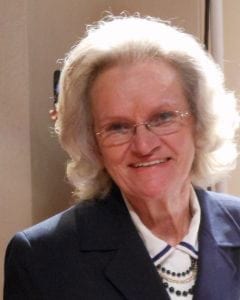Perhaps it is because parents often feel dissatisfied with the results they receive for their children through traditional medicine that they sometimes look elsewhere for treatments to improve the conditions of their family members. Since rare diseases are just that – rare – many in the medical community don’t know what to do for their rare patients. They really can’t be blamed for not having answers. Most of the attention in medicine is focused on taking care of the known and usual types of physical problems.
There were many of the more traditional ways in which physicians helped my daughter Kelley, but sometimes those things didn’t work out in the way they expected. I recall standing next to an excellent doctor looking at Kelley’s x-rays, and hearing him say, as he shook his head, “I wish I knew what to do for her.” He did find some ways of helping, but some of that treatment became a case of trying to see what might work.
When Kelley was young, the doctors mistakenly thought she had rheumatoid arthritis. I mentioned her condition to the chiropractor I was seeing for my back problems. He said he would like to see if there were anything he could do to help her. After examining her, he said that he was sure she didn’t have rheumatoid arthritis. He didn’t know what she had, and he also knew that he couldn’t cure her, but he could help her to be more comfortable. He was right. She was finally diagnosed with Mucolipidosis 3 and she also received a great deal of help from chiropractic care throughout her life.
It appears that nutrition is not adequately covered in medical schools. Through our own research, we did find some physicians who took it upon themselves to independently learn about the benefits of using some foods and avoiding others. They passed that information along to everyone, often by writing books. I found those books to be very helpful as we learned there were some foods that affected Kelley’s well-being. We learned that a food intolerance is different from an absolute allergy. However, that intolerance can play a crucial role in one’s general health.
Sometimes people in the medical community didn’t want to hear about the complementary treatments we used, but one of the best remarks I heard from any of them was, “Keep doing whatever you are doing. I can see that it helps.”
As I have met and corresponded with other rare disease families, as well as those who have other medical problems, I have learned that many have also done their own research into various ways to complement traditional medicine. I don’t know of any who have completely given up on traditional medicine, but complementary medicine helps us treat the whole person.
Along with chiropractic, diet, exercise, and supplements, Kelley learned about meditation and relaxation techniques. She also found numerous benefits from music, whether participating in it or listening to it.
Naturopathic physicians combine the wisdom of nature with modern science. They focus on holistic, proactive prevention by focusing the most natural way of healing rather than the use of medicine.
Other complimentary methods some have found helpful include hypnosis, acupressure, acupuncture, reflexology, reiki, homeopathy, biofeedback, art therapy and aromatherapy using essential oils.
I don’t consider any of these treatments as being alternative medicine, but rather they are complementary to the traditional medicine we need. There are some issues can only be addressed by a qualified skillful surgeon.
I think the happiest of any complementary therapies is the addition of a therapy dog to one’s home. Ask anyone who has one!







